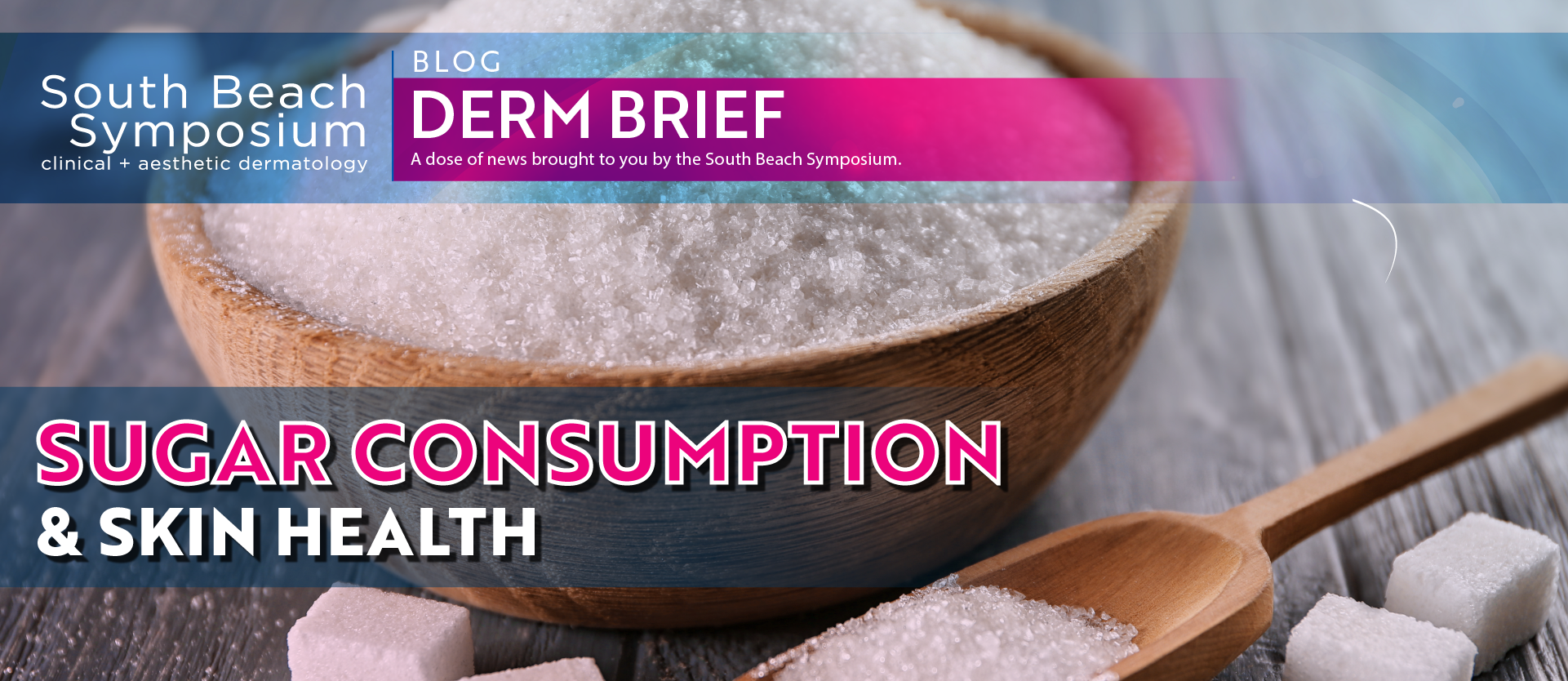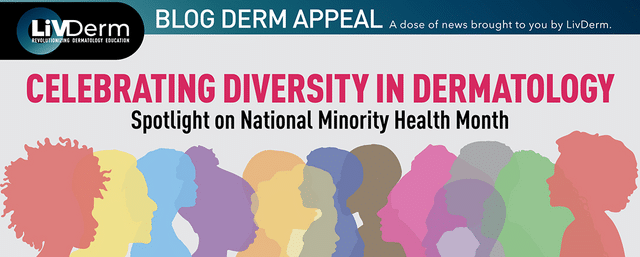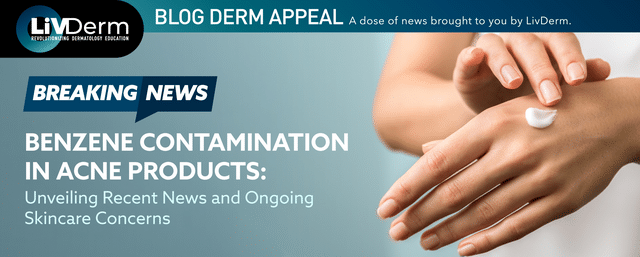With the consumption of processed foods at an all-time high, many people are unaware of the amount of sugar they ingest daily, which often greatly exceeds nutritional guidelines. It is estimated that the average American consumes 270 calories of added sugar per day – the equivalent of 17 teaspoons of sugar. Consuming too much sugar has various health repercussions; it increases the risk factors for cardiovascular disease such as obesity and hypertension, and has been linked to elevated CVD-related mortality rates.
Excessive sugar consumption not only affects physical health, increasing the risk of inflammation and obesity, but it also carries adverse effects on skin health. Sugar itself is an inflammatory food, while inflammation caused by eating foods with a high glycemic index – such as white bread, salad dressings, soda, and candy – can aggravate certain skin conditions. Worsening of symptoms has been linked to sugar intake in patients with acne, rosacea, psoriasis, and other inflammatory skin conditions as well as to accelerated signs of aging.
Sugar Consumption and Acne Vulgaris
The common skin condition acne vulgaris affects up to 10% of the global population, stemming from a multitude of factors which range from sebum and keratin production to hormones and bacteria overgrowth. Diet has proven to play a significant role in acne development as food-related inflammation can trigger breakouts. Sugar-rich and high glycemic foods promote inflammation throughout the entire body and cause spikes in insulin levels – which further exacerbate inflammation. Insulin spikes increase androgen secretion, oil production and contribute to the clogging of follicles – provoking acne breakouts and worsening skin complexion.
In a cross-sectional Turkish study, participants who frequently consumed added sugars experienced a 30% higher risk of developing acne. Meanwhile, those who regularly ate pastries and other baked goods had a 20% greater risk. There was a clear correlation between sugar consumption and acne prevalence in the cohort, possibly explained by the associated effects on blood glucose and insulin levels.
Rosacea and Other Inflammatory Skin Diseases
Although the root cause of rosacea and many other inflammatory skin conditions remain unknown, inflammation is thought to be a key factor. Certain foods and beverages have been identified as triggers, exacerbating rosacea and other skin condition flare-ups. Consuming sugar and processed foods may aggravate these conditions by causing chronic inflammation, while avoiding or limiting such foods can help alleviate symptoms.
Similarly, excessive sugar consumption in patients with psoriasis, eczema, or other inflammatory skin conditions may worsen symptoms. Studies have found that dietary changes, which include consuming less sugar, dairy, and gluten led to noticeable improvement of symptoms.
Accelerated Aging Process
Sugar-rich diets may also accelerate skin aging as high glycemic foods increase the breakdown of collagen fibers and promote glycation. The binding of sugar with collagen – which produces advanced glycation end products – causes collagen fibers to stiffen and become brittle, leading to an aged appearance of the skin. Moreover, sugar can accelerate telomere shortening, which has been linked to advancing the aging process, increasing wrinkling and sagging of the skin.
In general, the consumption of processed sugars and simple carbohydrates should be avoided although, a moderate amount of sugar in the diet is unlikely to have clinically evident effects on the skin. Nonetheless, monitoring sugar consumption is essential to maintain glycemic control and prevent overconsumption, which can ultimately lead to not only worsened overall health, but also poor skin health and premature aging.
For optimal skin health, patients should be advised to lower sugar and saturated fat levels, increase fruit and vegetable consumption, and to consume more omega-3 fatty acids. To avoid the adverse effects of a high sugar intake, the American Heart Association (AHA) recommends limiting the amount of added sugars to no more than half of the daily discretionary calories allowance; for most American women that is 100 calories per day and 150 calories for men.
















